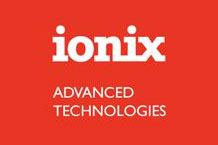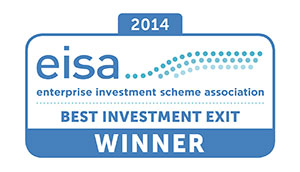|
Parkwalk are delighted to have closed an investment in Ionix Advanced Technologies, a...
|
|
|||||
 |
|
|||||
|
Dear , The market for piezo technologies - harnessing certain materials capacity to transform pressure into power or, alternatively, power into pressure - is already widespread and growing. The piezoelectric market is well established but applications are limited by the properties of the materials currently in use. Ionix Advanced Technologies was spun-out of the University of Leeds In 2011. The company has developed a set of proprietary devices (modifiable to suit different applications), based on its novel piezoceramic materials, which enable the protection of high value industrial assets in extreme temperature conditions. In addition to being one of the very few high activity piezo technologies capable of operating above 250°C, Ionix’s devices are simpler, lower cost and easier to install than the limited alternatives already in use (largely dominated by manual inspection devices). Improved productivity and extension of plant operating time has the potential to create £billions in customer value and create markets for Ionix’s devices with an estimated total value of over £500m. The Technology Ionix’s core device technology is based on a tri-component piezoceramic formulation, with derived materials that operate at temperatures in excess of 400°C, up to 200°C higher than PZT can tolerate, and that generates twice the piezoelectric strain, a measure of the movement that can be generated by the material. The materials can be transformed into a wide range of solid shapes and formats allowing use in many different potential applications. The materials form the key component inside a measurement or operating device (e.g. sensor). These often work by emitting ultrasonic sound waves and waiting for the energy to be reflected back. This is then converted into an electrical output that can be collected, analysed and displayed to provide high value information to a customer. An example of this would be measuring cracks in a pipe by assessing the time for a signal to return and evaluating the nature of the reflected energy. The Market Ionix has identified target markets with a clear value proposition to customers. In Process Control, operators are able to reduce operating cost (primarily via energy savings), decrease maintenance cost and reduce outage which increases capacity utilisation. In Condition Monitoring, where continuous operation is the ultimate goal requiring robust long-term device solutions, the value proposition is based on reducing productivity loss, extending operating time and increasing safety. In Ceramics Supply, the Company aims to supply its proprietary HPZ material for use by selected customers in non-competing markets where the properties of HPZ can be applied to real customer problems. The Model The revenue model in each direct application is to sell the device or material to customers, following a paid-for development programme leading to initial products, and subsequently generating recurring revenues through ongoing/replacement sales and consulting support. In non-core sectors, revenues will be extracted through suitable licencing deals where appropriate. Longer-term, the Company will seek to develop a fully-integrated system generating recurring revenue through access to, and interpretation of, data from its devices. The Team Ian Williamson, Non-Executive Chairman, is an investing chairman-designate expected to join the board on completion of the funding round. Ian previously served as the CEO of Carclo plc - a medical plastics and technology company - from 1995 to 2013. Dr David Astles, Chief Executive Officer, has been CEO of Ionix since 2014. David is a professional business leader with wide experience gained in a major blue chip (Shell) and leading small company start-ups. He has a strong international sales and marketing background with a track-record of launching new products and technology in global markets. Dr Tim Comyn, Technology Founder and acting CTO, has been working on the development of new piezoelectric materials for the past 13 years, the majority of which has been industrially funded. In addition to expertise in materials development and metrology, he has considerable experience in the development of devices and prototypes, in conjunction with industrial partners, in a wide range of spheres including acoustics, aerospace, ink-jet, defence, and medical. Tim has been working as acting CTO for Ionix since the start of 2014. The Investment Case We are co-investing in this early-stage company alongside IP Group, who have been involved with the business since its inception. Ionix is currently prototype testing devices with several influential players with promising preliminary results. It is expected that the first product roll-out could happen as early as 2016. The funds will be used to scale up ceramic and device production, allowing early revenues from ceramic material sales to selected markets and supporting development of the technology and market for devices in process control and condition monitoring applications. The Company estimates that this investment will support it through to profitability in 2017. We believe that another funding will prove likely to be necessary. A range of exit opportunities are possible to realise value for investors, including a full sale of the business to an appropriate trade player or a potential IPO. |
||
|
|||||
|
||
|
|||||

